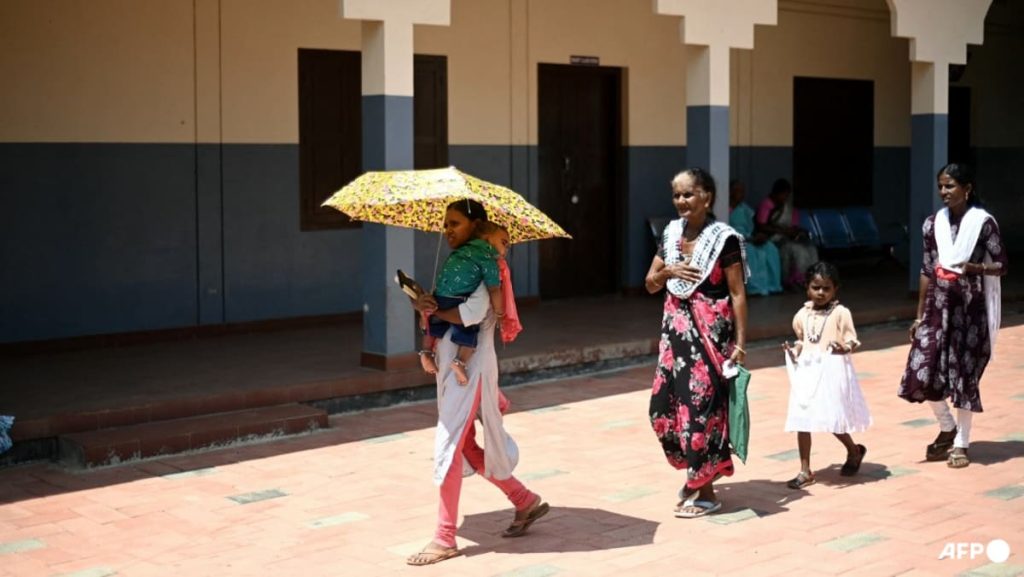Kerala’s state government has issued warnings and precautions to minimize exposure to extreme heat and avoid fires caused by soaring temperatures. With heatwave warnings in several districts, the government has instructed all educational institutions to remain closed until Monday. This decision follows a trend of school closures in other parts of Asia and North Africa due to heatwaves, exacerbating the disparity in educational opportunities between developing tropical nations and more developed countries. The intense heat has already claimed two lives in Kerala, although authorities have not confirmed whether these deaths were directly caused by the extreme temperatures.
In Thiruvananthapuram, the state capital, temperatures reached 35 degrees Celsius on Thursday, but it felt even hotter at 46 degrees Celsius due to high humidity. The Indian Meteorological Department (IMD) has been closely monitoring the situation and providing updates on weather conditions. The combination of soaring temperatures and dry spells has led to an increase in forest fires in various parts of India. In Odisha state, forest fires have been exacerbated by individuals burning forests to collect a flower used in the production of alcohol. These incidents highlight the environmental impacts of climate change and the need for increased awareness and preventive measures to protect communities.
The consequences of extreme heat and heatwaves are not limited to physical health and environmental damage. They also have far-reaching implications for education and socio-economic disparities. The closure of educational institutions in Kerala and other regions affected by heatwaves further exacerbates the existing learning gaps between developing nations in the tropics and more developed countries. Experts have warned that the widening educational disparities resulting from climate-related events could have long-term consequences on the future prospects of affected communities and nations. It is crucial for authorities to address these challenges and implement measures to mitigate the impact of climate change.
As temperatures continue to rise and extreme weather events become more frequent, proactive measures are essential to protect communities and ecosystems. The government’s directive to minimize exposure to the sun and monitor situations to prevent fires is a step in the right direction. By raising awareness about the risks posed by heatwaves and providing guidance on preventive measures, authorities can help safeguard the wellbeing of vulnerable populations. It is also important to address the underlying factors contributing to forest fires, such as unsustainable practices and resource exploitation. By promoting sustainable forest management and conservation efforts, it is possible to reduce the incidence of forest fires and protect valuable ecosystems.
The incidents in Kerala and other affected regions serve as a stark reminder of the urgent need to address the challenges posed by climate change. As temperatures soar and extreme weather events become more frequent, it is imperative for governments, communities, and individuals to work together to build resilience and adapt to changing climatic conditions. From implementing heatwave action plans to promoting sustainable practices, there are various steps that can be taken to mitigate the impact of climate-related events. By coming together and taking decisive action, we can protect our communities, ecosystems, and future generations from the ravages of climate change.













